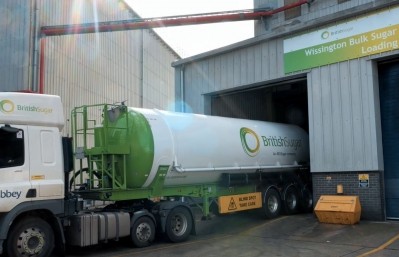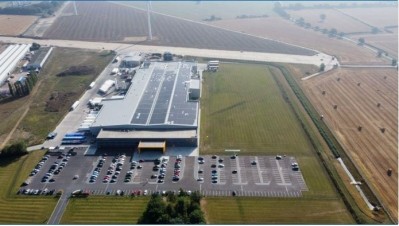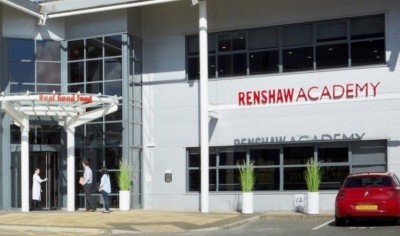Financial roundup: Cranswick, Bakkavor, ABF, Hilton Food, RGF

In a Companies House filing, Cranswick Country Foods reported that sales had topped £1bn in the 52 weeks to 28 March 2020, reaching £1.2bn, up from £970m in the previous financial year.
Like-for-like fresh pork revenue increased by 16.7%, driven by strong wholesale and export volumes. The average number of pigs processed weekly increased by 8.5% to 49,000. That had been boosted by export and retail demand, particularly during the first lockdown.
The company said in China the impact of African Swine Fever (ASF), which had almost halved the herd there, had made its pork exports extremely attractive, boosted further by a deal to export trotters from October 2020.
Vigilance for signs of African Swine Fever
According to Cranswick the industry remained vigilant for any signs of ASF, which so far was being contained in Eastern Europe, but which would hit pork exports if it entered the UK.
New foodservice business had helped grow bacon sales, while sales of ready-to-cook gammon products had also proved strong.
The business reported strong growth in pastry, particularly its Best Ever and En Croute ranges, helped by new contracts.
Continental products
Sales of continental products were up, underpinned by growth in corned beef, olive and pre-pack ranges. Multi-component platters helped lift Christmas sales.
Cranswick noted investment in its Bury continental products factory and investment in automating olive packing increased throughput and capacity there.
Sales of premium cooked poultry grew modestly, assisted by a retail contract win.
Bakkavor
In a financial update for the 52 weeks to 26 December 2020, ahead of its full-year results announcement on 16 March 2021, Bakkavor reported a strong recovery after the first lockdown. This had partially offset the hit taken across the year, but overall revenue was still 4.9% lower than the prior year and 4.9% lower on a like-for-like basis.
in the UK, volumes were adversely impacted in the final quarter by further restrictions, particularly within food-to-go. Forward planning and preparation for the all-important Christmas period enabled the company to maintain very high customer service levels and deliver Christmas volumes in line with the prior year. Overall, UK like-for-like sales for the full-year were 5.3% lower than last year.
Internationally, the US business grew by 12.7% on a like-for-like basis as we benefited from the growing trend for FPF and greater collaboration with our customers. The uplift, together with a strategic restructuring of our operations, led to a turnaround in performance and secured sustainable and profitable growth for the second half of the year, it claimed. However, the US growth was offset by a decline in revenues of 21.6% in China, the business most severely impacted by the pandemic, it reported.
Adapted factory ops to lower volumes
Bakkavor said it rapidly adapted factory operations and completed strategic restructurings in all regions to accommodate lower volumes, which would lead to adjusted pre-tax profit for the full-year in line with the £138m reported in the prior year.
The company stated: "Thorough planning ensured we were well-prepared ahead of the UK's exit from the European Union on 31 December 2020. We worked closely with suppliers and customers to put in place processes to mitigate any adverse risk to supply, and we continue to support colleagues in obtaining UK settled status. Although it is early days, these measures have minimised disruption to our business and our supply chain continues to operate effectively."
Chief executive officer Agust Gudmundsson said: "These are unprecedented times but the hard work and dedication of our teams, together with our scale and long-standing customer relationships, has delivered a strong and resilient performance. I am incredibly proud of our colleagues who have gone above and beyond in the toughest of circumstances. Their performance has been exceptional and I would like to thank them once again.
"Notwithstanding the ongoing impact of COVID-19, we have a sound business model and solid platform that leaves us well placed to navigate the current environment and achieve long-term sustainable growth."
Hilton Food Group
Meanwhile, in a trading update covering the 53 weeks to 3 January, Hilton Food Group (HFG) said COVID-19 trends has driven up red meat and fish volumes, with additional red meat business with Tesco, boosting revenue. Turnover continued to grow in Sweden and Denmark, where the firm is now packing chicken. In Holland, higher red meat volumes benefited from increased volumes of vegetarian and vegan products produced by Dalco. Central Europe volumes remained buoyant, with continued volume growth in fresh food across Tesco and Zabka. The company said its Belgium operation was proceeding in line with its expectations.
In Australia, HFG successfully rolled out production from the Queensland site and increased volumes to targeted levels, leading to strong top line growth. Pandemic restrictions in Victoria state had been largely been lifted and there had been a reversion towards more normalised consumption during the fourth quarter. The development of the New Zealand facility was still on track to open in the third quarter of 2021.
The firm said its trading outlook remained positive, with growth prospects underpinned by expansion plans covering Belgium and New Zealand and further opportunities from the development of cross-category business and the application of HFG's supply chain management expertise. Funding is in place to cover the announced expansions and the group's financial position remained strong.
Matthew Webb, equity research analyst at Panmure Gordon commented: "We see material scope for HFG to win business with new and existing customers, in new and existing markets, and particularly (but not exclusively) in categories where it is a relatively recent entrant, most notably fish and vegetarian food."
ABF Food
Elsewhere, while ABF encountered considerable struggles in its clothing retail business, its food operations continued to exhibit strong growth in the 16 weeks ended 2 January. Total food sales grew 7% from £2.6bn to £2.8bn on the same period in the previous financial year. Grocery, sugar and ingredients sales achieved single digit growth, while growth in agriculture reached 10%.
In grocery, sales were driven by Twinings and Ovaltine as well as lockdown buying habits and efforts to stockpile products internationally ahead of the end of the Brexit transition period.
Growth in sugar was driven by higher British Sugar prices and record bioethanol prices. However, the company said the virus Yellows Disease would hit production volumes for sugar in the coming year.
Ingredients sales were driven by retail bakery yeast and retail bakery ingredients products at AB Mauri.
ABF said it expected food sales over the rest of the year to remain well ahead of the previous year.
Real Good Food (RGF)
In a trading update issued on 13 January, RGF reported that business had improved in its third financial quarter (Q3) after a tough first half performance.
However, the impact of the COVID-19 pandemic and Brexit-related uncertainties had frustrated its attempts to use capacity investment in Brighter Foods to accelerate operational changes within Renshaw business. As a result, hoped-for revenue growth from new products and better customer service delivery had not been realised.
The group eventually achieved break-even adjusted pre-tax profit for the first half, versus £2.8m in the same period in 2019. That said, after pandemic restrictions were eased, Q3 pre-tax profit was in line with that of 2019 at £1.7m.
Renshaw continued to focus on developing strategic partnerships with customers and distributors and operational improvements, benefits for which were beginning to come through, RFG reported. The business has also continued to develop and innovate new products, most notably with recent product launches in Tesco, Waitrose, and Marks & Spencer.
Elsewhere, its Brighter Foods business was hit by the sectors it sells into being substantially closed during the first lockdown. However, by working closely with its customers to identify new potential outlets, the management team had succeeded in recovering revenues in the next two quarters. By flexing its cost base, the business had remained profitable throughout the year.
















